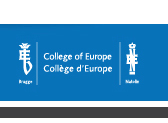


 |
ABOUT | PROGRAMME | SPEAKERS | REGISTRATION | PREVIOUS EDITIONS | MEDIA | VENUE & INFO | CONTACTS |
Globalisation and technological progress have altered fundamentally competitive relationships, enabling businesses to procure supplies and reach consumers beyond national borders. Tax systems, however have not adapted to these structural changes. The need to secure sufficient tax revenue to create fiscal space in the post-crisis framework, exposure to aggressive tax-planning strategies and the resulting public outcry compel European countries to reform their tax systems and to work together in the context of the European Union to devise systems which are compatible with new business models and corporate strategies.
The European Union has been grappling with tax issues ever since its establishment. In his 2017 State of the Union address, the President of the European Commission, Jean-Claude Juncker, stated that he was "strongly in favour of qualified majority voting for decisions on the common consolidated corporate tax base, on VAT, on fair taxes for the digital industry and on the financial transaction tax."
Autonomy in designing tax policies is one of the few privileges that Member States have retained in the area of economic policy. It will be a difficult task for the EU to devise a common corporate tax base and determine what may constitute a fair tax for digital activities. At the same time, the EU is considering whether it should levy a tax of its own to partly fund its budget. Any of the taxes that have been proposed is likely to distort transactions in the internal market.
Part of the problem is that taxes and tax systems reflect different national preferences and perform multiple and sometimes contradictory roles. They raise revenue to pay for public goods, redistribute income from the rich to the poor, incentivise companies and entrepreneurs to engage in activities which boost economic growth, and penalise other activities that may have a negative impact on the environment or society.
At the same time it is well understood that completely autonomous tax policies can impose costs on other countries, as the cross-border impact of national tax measures are not just European, but global. The 2017 OECD report on Tax Policy Reforms identifies "important questions" arising from "increase in corporate tax rate competition", "very low" environmental taxes, and "high" tax burden on labour income.
European and international cooperation can be beneficial. For this reason, the EU has prohibited state aid in the form of tax exemptions or reductions, has established a unique but complex VAT system supporting the free movement of goods and services within the internal market, has introduced rules on the treatment of income between subsidiary and parent companies and the taxation of savings and has strengthened administrative cooperation and automated exchange of information (DAC). These and other measures notwithstanding, numerous challenges lie ahead.
The 9th Bruges European Business Conference aims to address the issues facing the European Union in designing growth-inducing and fair tax policies while removing tax obstacles in the internal market.
KEYNOTE SPEAKER: Pierre Moscovici, Commissioner for Economic and Financial Affairs, Taxation and Customs Union, European Commission
A JOINT INITIATIVE
The Bruges European Business Conference is a joint initiative of the College of Europe's specialisation on “European Economic Integration and Business” and Deloitte, to exchange ideas on public policy challenges and debate EU-related issues of importance to European business.
College of Europe BUSINESS CLUB
The Bruges European Business Conference is especially supported by the College of Europe Business Club, a student initiative driven primarily by students specializing in European Economic Integration and Business. The Business Club strives for a mutual exchange of knowledge between top students of the College of Europe and business institutions (firms, chambers, etc.). It aims at developing and disseminating managerial and entrepreneurial skills within the students of the College and ultimately, to spread innovative and entrepreneurial thinking across Europe.


